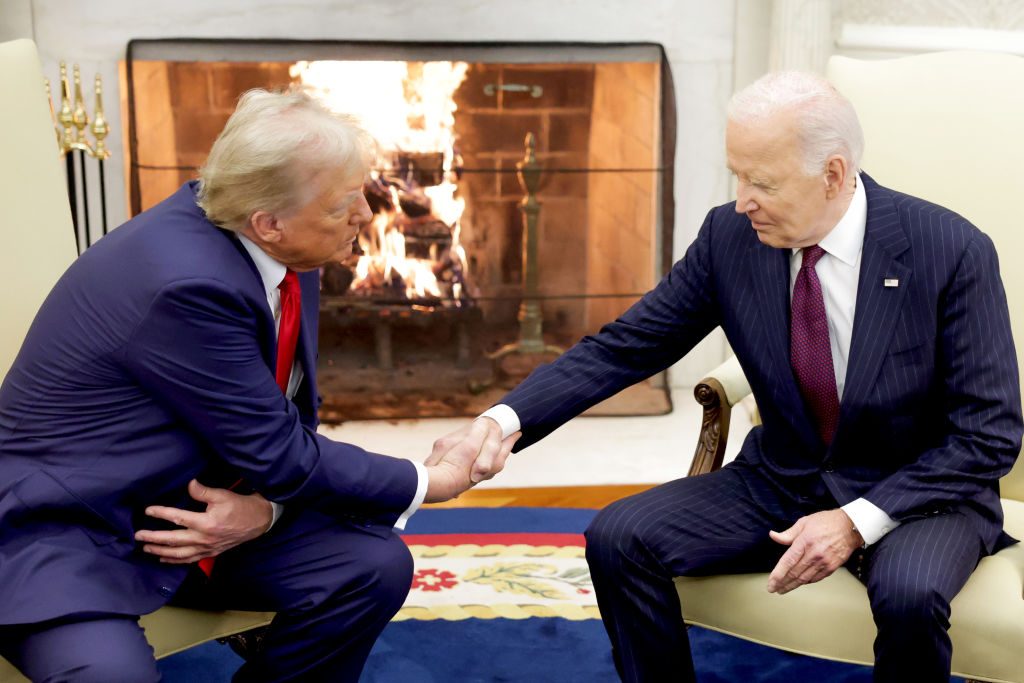Another week, another Trumpian attempt to reverse the damage caused by the administration’s early slash-and-burn attack on the regulatory state. On Monday, The Wall Street Journal reported on an incoming executive order from President Trump to restrict so-called debanking — that is, the ability of financial institutions to remove customers on the basis of their political and religious views.
The text of the order isn’t public yet (the Journal merely summarised it), but the substance is still telling: his team swiftly put a stop to the previous administration’s anti-debanking efforts upon taking power.
In January Rohit Chopra, Joe Biden’s outgoing director of the Consumer Financial Protection Bureau, promulgated a rule that would have barred banks from “fining, suing, or deplatforming based on customer comments, reviews, or political or religious views”. As Chopra told UnHerd in his final on-the-record interview as CFPB director, “just because someone disagrees with corporate executives, that’s no grounds for losing their fundamental rights.”
The proposed CFPB rule was seen as an olive branch extended to members of the populist Right, some of the earliest targets of debanking on both sides of the Atlantic. Yet during the transition, the agency came under severe attack from Trump’s Big Tech patrons, not least Elon Musk and Meta’s Mark Zuckerberg, who complained of CFPB oversight of their social media firms.
As Chopra explained, however, it wasn’t the CFPB that was intruding into the social media space. Rather, tech firms are increasingly expanding their footprint in the financial system, turning their platforms into “everything” apps that can act as payment processors and potentially surveil ordinary people’s financial behaviour to influence dynamic, algorithmic pricing.
Even so, the new administration heeded the tech barons’ call to kill the CFPB, and Musk gloated on X: “CFPB RIP.”
In its earliest days, the administration put the agency under the acting directorship of Russell Vought, an old-school pro-business conservative, and froze nearly all of its courtroom activities — including a lawsuit against the US banking association over its members’ right to debank customers. The administration also attacked a CFPB rule aimed at preventing banks from slamming customers’ checking accounts with overdraft fees, a practice that especially afflicts Trump’s own downscale base; that measure, Team Trump said in an especially Orwellian touch, amounted to “price controls” and interference with Americans’ checking accounts.
Now, several months later, comes an executive order aimed at restoring Chopra’s rule. But this is a weaker version of what would have been achieved had the Chopra proposal been upheld and the lawsuit allowed to proceed. For one thing, the early reporting suggests the new executive order would only apply to decisions to extend credit. It isn’t clear if it covers deposit accounts.
The new rule doesn’t amount to an outright, explicit ban on debanking. Instead, it seems to merely empower various agencies to investigate potential violations of existing law in such cases. Haphazard executive orders are also a subpar way of addressing crises of this kind, since they lack the relative permanence and stability of legislation or agency regulations.
The bottom line is that opposing debanking was and remains a slam-dunk populist measure. It’s yet another testament to the second Trump administration’s failure of imagination and thraldom to Musk, Big Tech, and Wall Street that it willingly gave up a range of anti-debanking tools — only to backtrack and stand up a much lamer version six months later.











Join the discussion
Join like minded readers that support our journalism by becoming a paid subscriber
To join the discussion in the comments, become a paid subscriber.
Join like minded readers that support our journalism, read unlimited articles and enjoy other subscriber-only benefits.
Subscribe